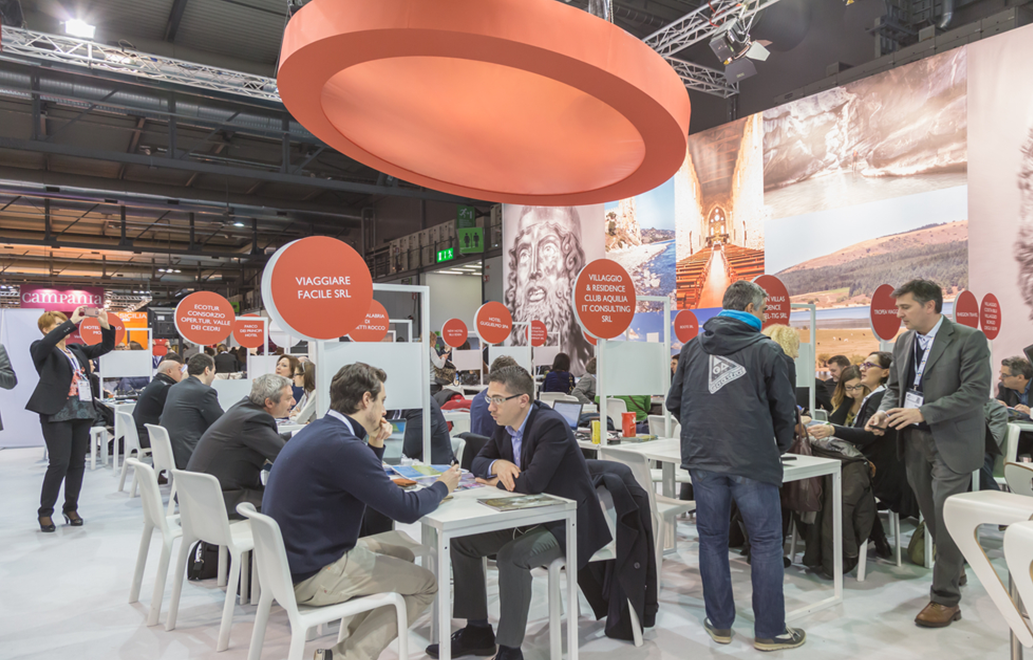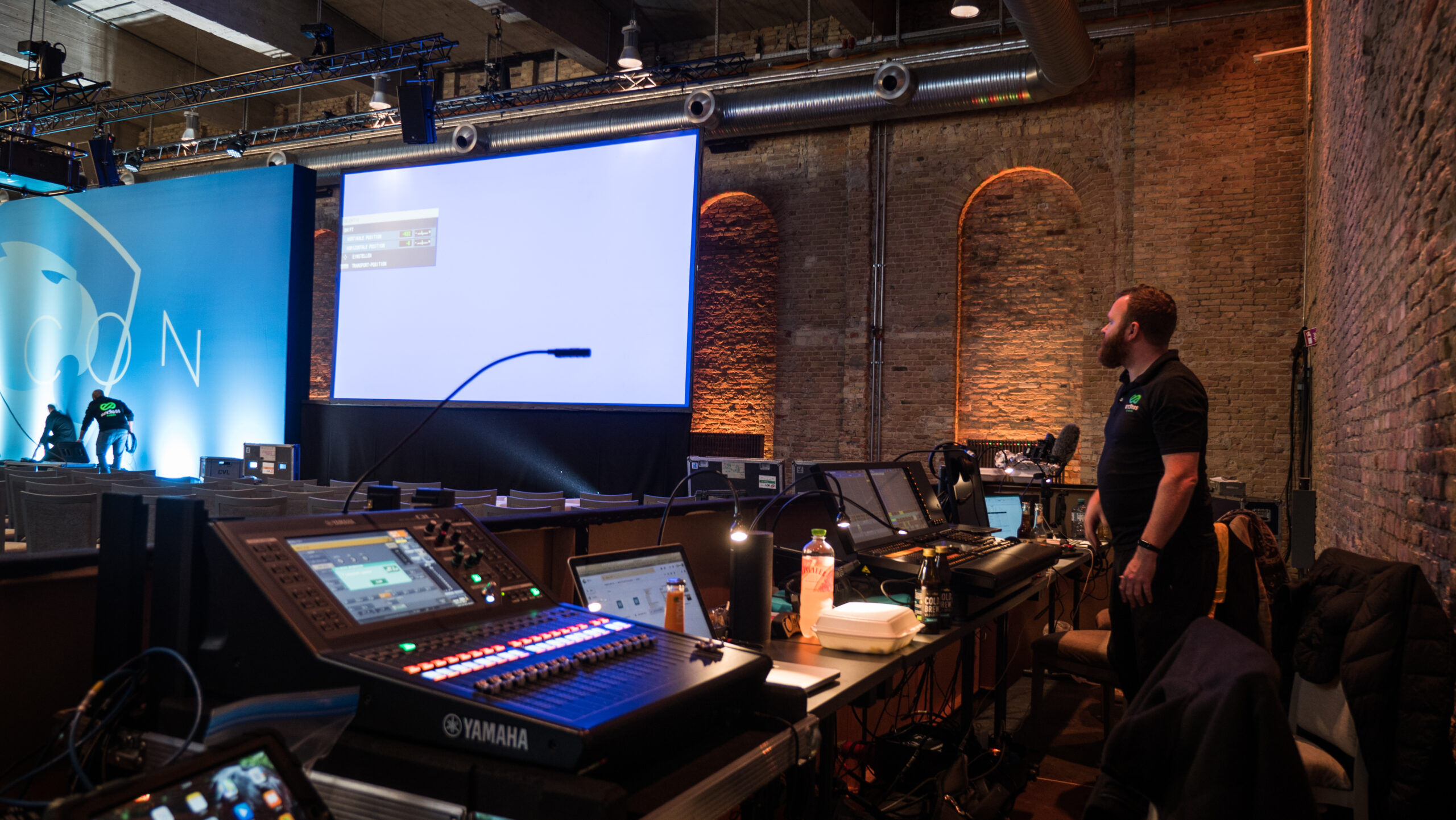Exactly How Event Production Works: A Comprehensive Take A Look At the Process
Event production is a complex and structured procedure that calls for mindful preparation and implementation. It begins with establishing clear objectives and recognizing the target market. Each action, from budgeting to location selection, plays an essential duty in making certain success. As the procedure unfolds, various elements have to straighten effortlessly. Yet, the subtleties of this elaborate operation often go undetected. What are the key stages that add to an unforgettable event?

The First Planning Stage
When starting on event production, careful preparation is important to assure a successful outcome. The initial drawing board acts as the foundation for all subsequent efforts. During this stage, event manufacturers need to specify the event's function and goals plainly. Determining the target market assists customize the experience and messaging, guaranteeing significance and engagement.Producers need to likewise think about the event style, whether it be in-person, online, or hybrid, as this will influence various logistical components. Picking an ideal day and location is vital, as it affects availability and availability.Furthermore, setting up a trusted group is essential for splitting obligations and improving communication. Developing a timeline with landmarks assurances all tasks are completed on timetable. This phase includes extensive research, consisting of recognizing potential difficulties and developing strategies to minimize threats. Eventually, a well-structured initial preparation phase establishes the tone for an effective event production journey.

Budgeting and Source Allowance
In event production, effective budgeting and source allocation are essential for success - event production charlotte. Establishing economic specifications establishes the foundation for all succeeding decisions, while source distribution methods guarantee that every element of the event is effectively supported. With each other, these elements assist keep control over expenditures and enhance using offered sources
Establishing Financial Parameters
Developing economic parameters is crucial to the success of any event production, as it sets the structure for reliable budgeting and resource allotment. This procedure begins with defining the total budget, which includes all facets of the event, consisting of venue prices, food catering, and advertising and marketing. By identifying offered funds, event organizers can focus on expenses and allocate resources appropriately. Furthermore, it is important to carry out complete market study to anticipate potential expenses and identify funding sources, such as sponsorships or ticket sales. Developing clear monetary criteria additionally help in threat management, allowing planners to reserve contingency funds for unforeseen costs. Eventually, a distinct budget plan functions as a roadmap, assisting the event production group in the direction of attaining their objectives while keeping economic control.
Source Circulation Methods
Efficient resource distribution techniques are vital for making the most of the impact of an event while sticking to spending plan restrictions. Successful event production requires a meticulous approach to budgeting and source appropriation. Coordinators should prioritize essential components such as place, wedding catering, and modern technology, making certain that funds are alloted to areas that enhance participant experience. A thorough budget plan ought to outline anticipated costs and identify locations for prospective cost financial savings, such as discussing with vendors or exploring sponsorship possibilities. Furthermore, tracking expenditures throughout the preparation process helps stop overspending. By using calculated resource circulation, event manufacturers can supply an unforgettable experience while maintaining financial responsibility, eventually contributing to the total success of the event.
Venue Option and Logistics
Selecting the right location is important to the success of any kind of event, as it sets the phase for the total experience. Location option entails evaluating numerous aspects, consisting of capability, accessibility, and area. Planners need to consider the target market and the nature of the event, making sure the venue lines up with the event's goals.Logistics play a substantial role in this process, including setups for seating, audiovisual devices, and providing solutions. A well-chosen location ought to promote smooth flow for participants and staff, improving engagement.Additionally, assessing potential venues for facilities like parking, washrooms, and emergency situation leaves is essential for safety and security and benefit. The timeline for protecting the location is additionally important, as popular places may reserve promptly - event production charlotte. Comprehensive preparation and prompt implementation can eventually add to a seamless event experience, making location choice and logistics fundamental components of successful event production.
Innovative Idea Advancement
While the venue sets the physical phase, imaginative principle advancement shapes the event's identity and story. This process begins with identifying the event's purpose and target market, permitting event manufacturers to develop a compelling motif that reverberates with attendees. Conceptualizing sessions often consist of varied point of views, fostering innovative concepts that line up with the event's goals.Once a theme is established, aesthetic aspects such as color palettes, signs, and decoration are developed to enhance the total environment. Narration strategies may also be incorporated to create an engaging trip for participants, assuring an unforgettable experience. In addition, considerations pertaining to amusement, activities, and interactive components are lined up with the chosen principle, reinforcing the motif throughout the event.Ultimately, effective imaginative concept growth guarantees that every facet of the event works cohesively, leaving a long-term impression on participants and fulfilling the event's objectives. This fundamental work prepares for subsequent preparation and execution stages.
Teaming up With Vendors and Distributors
Effective event production hinges on reliable collaboration with suppliers and suppliers. Choosing reliable partners, bargaining contracts effectively, and making sure prompt distributions are vital action in this procedure. Each of these elements contributes substantially to the overall success and smooth implementation of an event.
Choosing Reliable Allies
Just how can event planners ensure a smooth production experience? Picking reliable partners is crucial in attaining this objective. Event planners should carry out complete study to recognize suppliers and suppliers with a proven performance history of quality. This consists of checking references, reviewing portfolios, and assessing customer comments. Coordinators should prioritize partners who demonstrate professionalism, timely communication, and a determination to collaborate. Building strong partnerships fosters trust and enables fast analytic throughout the event. In addition, it is valuable to pick neighborhood vendors who understand the venue and local logistics. Inevitably, an effective event depends upon the synergy between planners and their companions, making sure that every element of production runs smoothly and efficiently.
Working Out Agreements Successfully
Effective arrangement of contracts is a crucial action in the partnership between event organizers and their suppliers and providers. This process entails clear communication of assumptions, deliverables, and timelines. Planners need to conduct extensive research on market prices and industry requirements to develop a standard for arrangements. It is very important to create a collective environment, motivating open dialogue regarding terms, rates, and potential contingencies. Organizers ought to also focus on understanding the vendor's capabilities and limitations to straighten their requirements effectively. Adaptability can lead to equally helpful agreements, cultivating long-lasting partnerships. Crafting well-defined contracts that include details efficiency metrics can aid assure accountability, inevitably bring about effective event execution and contentment for all celebrations involved.
Making Certain Timely Deliveries
Prompt deliveries are essential for the smooth implementation of any type of event, requiring thorough partnership between coordinators and their vendors and distributors. Efficient interaction is important, as it helps establish clear assumptions concerning shipment timetables, amounts, and specific demands. Organizers typically create detailed have a peek at these guys timelines to detail crucial milestones, making certain all celebrations remain straightened throughout the procedure. Regular check-ins with vendors can help identify potential delays early, enabling positive remedies. Furthermore, developing solid relationships with trusted providers fosters depend on and liability, which can lead to far better service and prioritization. By prioritizing these collaborative initiatives, organizers can decrease disturbances, consequently improving the total effectiveness of event production and guaranteeing that all required materials and solutions show up as prepared.
Advertising And Marketing and Promo Techniques
While arranging an event, the success of advertising and marketing and promo strategies can significantly discover here affect participation and engagement. Reliable techniques often include a mix of digital advertising and marketing, standard advertising, and grassroots outreach. Making use of social media systems allows for real-time communication and targeted advertising, getting to particular demographics properly. Email marketing projects can further involve possible guests with tailored content and reminders.Collaborations with influencers or market leaders can additionally improve reputation and widen reach. Producing interesting content, such as video clips or blog sites, helps to produce buzz and receive interest leading up to the event. Furthermore, leveraging early-bird price cuts and exclusive benefits can incentivize ticket purchases.Promoting via traditional channels, such as posters or regional media, continues to be relevant, especially in community-focused events. A complete approach that integrates several methods warranties maximum visibility and interaction, eventually adding to the event's success and the production of a memorable experience for attendees.
On-Site Execution and Administration
On-site implementation and monitoring are essential components that identify the general success of an event. Efficient coordination during the event assures that all aspects line up with the planned program. Event supervisors look after logistics, consisting of supplier sychronisation, tools arrangement, and guest services. Keeping track of timelines and attending to any type of unforeseen problems are fundamental for keeping a smooth experience.The team plays a substantial duty, as experienced employees are accountable for different tasks such as registration, details circulation, and technological support. Communication amongst staff member is necessary; it promotes a collective environment and makes it possible for fast resolution of challenges.Additionally, security protocols must be stuck to, securing the wellness of all attendees. Post-event analyses are likewise part of on-site monitoring, supplying understandings for future improvements. By concentrating on these facets, event manufacturers can develop unforgettable experiences that meet or go beyond guest assumptions while accomplishing the event's purposes.
Frequently Asked Inquiries
Exactly how Do I Choose the Right Event Style?
Choosing the appropriate event theme entails thinking about the target market, event function, and venue. Investigating current trends and collecting input from stakeholders can also influence creative ideas that reverberate and create a remarkable experience.

What Prevail Errors in Event Production?
Common mistakes in event production often consist of poor planning, poor communication among team participants, spending plan mismanagement, disregarding to take into consideration the audience's needs, and failing to perform a detailed post-event examination for future improvements.
How Can I Gauge Event Success?
To determine event success, one can evaluate attendee contentment, interaction levels, spending plan adherence, and post-event comments. Key efficiency signs, such as ticket sales and social media communications, likewise provide useful insights right into overall performance.
What Should I Do if It Moistens the Event Day?
In case of moisten the day, the coordinator must implement backup plans, such as safeguarding tents or relocating activities inside your home. Communication with guests about modifications is important to assure a smooth experience despite weather difficulties.
Just How Can I Guarantee Participant Engagement Throughout the Event?
